 W
WA punk house is a dwelling occupied by members of the punk subculture. Punk houses are similar to the hippie crash pads of the 1960s. The Factory, an alternative living space founded by Andy Warhol as the home base of The Velvet Underground, is directly linked to the formation of punk rock in New York City. In the early 1980s, a few punk gangs developed around allegiance to certain punk houses.
 W
WSquatting is the action of occupying an abandoned or unoccupied area of land or a building, usually residential, that the squatter does not own, rent or otherwise have lawful permission to use. The United Nations estimated in 2003 that there were one billion slum residents and squatters globally. Squatting occurs worldwide and tends to occur when people who are poor and homeless find empty buildings or land to occupy for housing. It has a long history, broken down by country below.
 W
WBathore is an area just outside Tirana, the capital of Albania. It is part of the municipality Kamëz. The area, comprising approximately 5 square kilometres (2 sq mi) was a collective farm run by the state under communism.
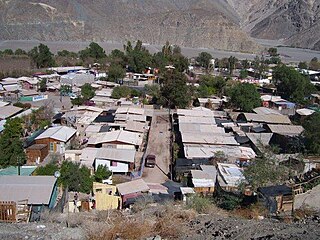 W
WCampamento and población callampa are terms given in Chile to shanty towns. The term "mushroom town" refers to the speed in which these informal settlements sprung up between the 1960s and the 1980s, literally overnight. Nowadays, the term campamento has replaced "mushroom town".
 W
WCities Alliance is a global partnership fighting urban poverty and supporting cities to deliver sustainable development. To manage its activities, the Cities Alliance operates a multi-donor fund with UN Office for Project Services (UNOPS), as host and trustee. Different members provide direction, financing and advocacy. Cities Alliance aims to deliver solutions to urban poverty.
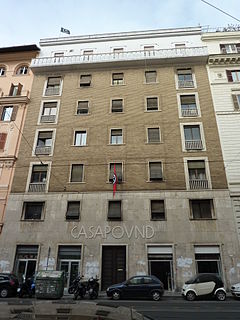 W
WA far-right social centre is a space inspired by neo-fascist and Third Position ideas, typically in the 21st century.
 W
WThe Good Terrorist is a 1985 political novel written by the British novelist Doris Lessing. The book's protagonist is the naïve drifter Alice, who squats with a group of radicals in London and is drawn into their terrorist activities.
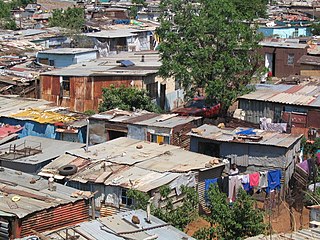 W
WInformal housing or informal settlement can include any form of housing, shelter, or settlement which is illegal, falls outside of government control or regulation, or is not afforded protection by the state. As such, the informal housing industry is part of the informal sector.
 W
WInfoshops are places in which people can access anarchist or autonomist ideas. They are often stand-alone projects, or can form part of a larger radical bookshop, archive, autonomous social centre or community centre. Typically, infoshops offer flyers, posters, zines, pamphlets and books for sale or donation. Other items such as badges, locally produced artworks and T-shirts are also often available. Infoshops can also provide printing and copying facilities for people to produce their own literature or have a meeting space.
 W
WA komboni is a type of informal housing compound or shanty town common to Zambia, particularly the capital city of Lusaka. It is characterized by a low income and a high population density. Kombonis typically began as housing for employees of a particular company, estate, or mine. An estimated 35% of Zambians live in urban areas, and kombonis exist in many of them. It is estimated that 80% of the population of Lusaka live and work in these areas.
 W
WThe Legal Aid, Sentencing and Punishment of Offenders Act 2012 (LASPO) is a statute of the Parliament of the United Kingdom during the coalition government, creating reforms to the justice system. The bill for the act was introduced in the House of Commons on 21 June 2011, and received Royal Assent on 1 May 2012.
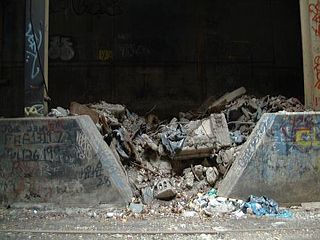 W
WMole people are homeless people living under large cities in abandoned subway, railroad, flood, sewage tunnels, and heating shafts. The term may also refer to the speculative fiction trope of an entirely subterranean society or a race of humanoid moles.
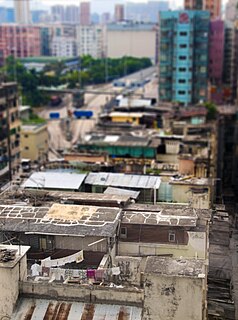 W
WRooftop slum or penthouse slum generally refers to illegal housing on the rooftops of apartment buildings. In Hong Kong, some people are unable to afford traditional apartments and are forced to wait years for affordable public housing. They therefore live in squatted shacks on top of buildings. According to the Hong Kong population census, there were 47,091 rooftop dwellers in 2011 and this number is likely to have dropped as working class areas are redeveloped.
 W
WA shanty town or squatter area is a settlement of improvised buildings known as shanties or shacks, typically made of materials such as mud and wood. A typical shanty town is squatted and in the beginning lacks adequate infrastructure, including proper sanitation, safe water supply, electricity and street drainage. Over time, shanty towns can develop their infrastructure and even change into middle class neighbourhoods. They can be small informal settlements or they can house millions of people.
 W
WSquatting in the island country of Antigua and Barbuda in the West Indies is the occupation of unused land or derelict buildings without the permission of the owner. Historically, native Barbudans were seen as squatters and after Hurricane Irma in 2017, Prime Minister Gaston Browne offered people he termed squatters the chance to buy their land.
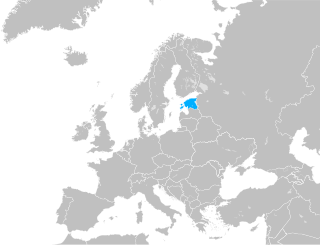 W
WSquatting in Estonia is the occupation of unused land or derelict buildings without the permission of the owner. It is a tactic used by different groups including former factory workers, homeless people, artists and anarchists.
 W
WSquatting in the Republic of Ireland is the occupation of unused land or derelict buildings without the permission of the owner. In the 1960s, the Dublin Housing Action Committee highlighted the housing crisis by squatting buildings. From the 1990s onwards there have been occasional political squats such as Grangegorman.
 W
WSquatting in Uganda is the occupation of derelict buildings or unused land without the permission of the owner. The complicated history of land tenure has generated conflicts between squatters and owners.
 W
WA suburb is a mixed-use or residential area. It can exist either as part of a city/urban area and can often have a large number of employment. In some metropolitan areas they exist as separate residential communities within commuting distance of a city. Suburbs might have their own political or legal jurisdiction, especially in the United States, but this is not always the case, especially in the United Kingdom where most suburbs are located within the administrative boundaries of cities. In most English-speaking countries, suburban areas are defined in contrast to central or inner city areas, but in Australian English and South African English, suburb has become largely synonymous with what is called a "neighborhood" in other countries, and the term encompasses inner city areas.
 W
W